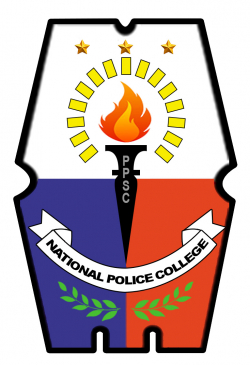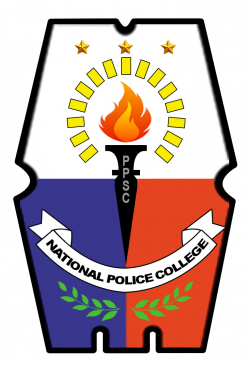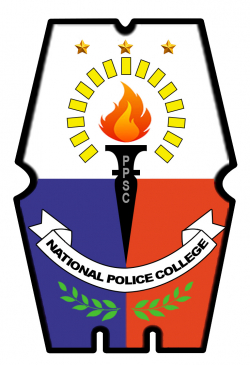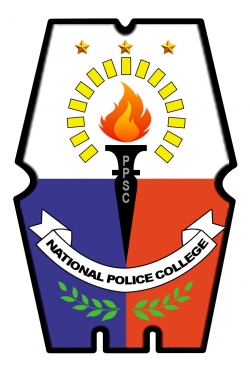WAR ON DRUGS: BASIS FOR MULTI-SECTORAL APPROACH
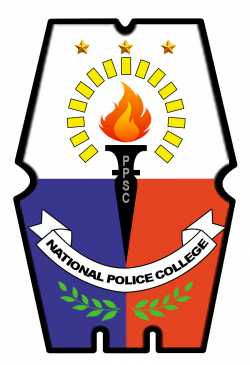
Type
Thesis
Category
PSOSEC
[ Browse Items ]
Publication Year
2018
Abstract
This study aimed to analyze the status of the war on drugs as a basis for the Multi-sectoral approach. Specifically, it aimed to determine the status of the war on drugs program of the Philippine National Police before (2014-2015), and the level of Police before (2014-2015), and the level of participation of the multi-sectoral groups before, during and after the operations of the war on drugs. This study employed participation of the multi-sectoral groups before, during and after the operations of the war on drugs. This study employed mixed method and research design. It utilized the quantitative specifically the descriptive research and was supported by the qualitative method using the interview to triangulate the result of the study. Purposive sampling was employed to identify the seventy-eight (78) purposely selected respondents who answered the survey questionnaire, while twenty-one (21) participants were involved in the Focus Group Discussion (FGD). The respondents and participants were representatives of the different sectoral groups in Kidapawan City.
Based on the findings of the study, the researchers found out that the nature of the crimes prevalent during the CY 2014 and 2015 was a crime against property while in 2016 and 2017, crime against person specifically homicide cases was shown to be dominant among the eight identified crimes. This is due to the reason that drug syndicates were clashing each other in order to survive. In the fight against War on Drugs particularly on the operational phase, it was found out there was a low to moderate participation of the multi-sectoral groups. On the other hand, on the post- operational phase, there was a “High Participation” of the identified groups. The overall mean of 3.53 read as “high participation” indicates that various groups in the community support most of the religious and social activities in the barangay. On the basis of this study, several conclusions were drawn up which serve as the answer to the questions stated in the problem of the study.
On the status of war on drugs implemented by PDEA and Philippine National Police before and during the incumbency of President Rodrigo R. Duterte revealed a notable decreased in terms of the number of arrested person involved in illegal drug, the number of arrested person on non-drug related cases, nature of crimes committed, and supply and demand status of illegal drugs.
On the bases of the status of the eight (8) focus crimes (crime against person and crime against property) showed a remarkable decreased of incidents during the implementation of war on drugs based on the data taken annually starting 2014, 2015, 2016 and 2017: physical injury has a total frequency of 649 in 2014-15 to 180 in 2017, theft has a total frequency of 694 in 2014-15 to 425 in 2017, robbery has a frequency of 246 in 2014-15 to 74 in 2017 while homicide has the frequency of 5 during 2014-15 but it increased to 24 in 2017, homicide amongst the crimes had increased. It was gleaned from the result of the study that a mean of 228 cases in all eight (8) focus crimes happened in every year before the start of the war on drugs. This implies further, that war on drugs is very effective in decreasing the eight (8) crime cases at 52.97% from one thousand eight hundred twenty-four (1824) cases during calendar years (2014-2015) it was run down to nine hundred forty-eight (948) cases for the Calendar year (2016-2017) which is the height of the implementation of the War on Drugs. This implies further that the eight (8) focused crimes have dramatically decreased in frequency except for homicide due to the reasons that groups involved in illegal drug activities wanted to survive alone to the extent of luring the other to the law enforcers that was why the other groups would be killing each other as revenge. There is a moderate participation of the multi-sectoral groups in the implementation of Anti-illegal Drug Campaign or “War on Drugs” in Kidapawan City.
On the issues, concern and challenges during the implementation of war on drugs, the researchers were able to note that the war on drugs was effective as evidenced by the eagerness of the people on its continuity, active involvement of the multi-sectoral groups in the community spearheaded by the concern agencies during validation process of drug personalities, spiritual aspect of human beings should be given due importance and the program must be properly implemented.
The researchers would like to propose the following recommendations;
First, it is recommended that the war on drugs program must continue and the organization of oversight committee purposely to assess the program’s efficiency and effectiveness on weekly basis and include the Barangay chairman as member during the weekly meeting.
Secondly, it is recommended that the multi-sectoral groups and resident in the community should undergo anti-crime seminars and trainings and other similar activities pre-requisites to all residents in the respective Barangay.
Thirdly, it is recommended that each Barangay will train their speaker’s bureau team to re-echo all directives coming from higher offices especially the campaign on war on drugs.
Lastly, it is recommended that suggestion box and hotlines will be mandatorily maintained at public places for easy access of the people with their comments, suggestions and recommendations to encourage active participation and strengthening the security of the locality.
Based on the findings of the study, the researchers found out that the nature of the crimes prevalent during the CY 2014 and 2015 was a crime against property while in 2016 and 2017, crime against person specifically homicide cases was shown to be dominant among the eight identified crimes. This is due to the reason that drug syndicates were clashing each other in order to survive. In the fight against War on Drugs particularly on the operational phase, it was found out there was a low to moderate participation of the multi-sectoral groups. On the other hand, on the post- operational phase, there was a “High Participation” of the identified groups. The overall mean of 3.53 read as “high participation” indicates that various groups in the community support most of the religious and social activities in the barangay. On the basis of this study, several conclusions were drawn up which serve as the answer to the questions stated in the problem of the study.
On the status of war on drugs implemented by PDEA and Philippine National Police before and during the incumbency of President Rodrigo R. Duterte revealed a notable decreased in terms of the number of arrested person involved in illegal drug, the number of arrested person on non-drug related cases, nature of crimes committed, and supply and demand status of illegal drugs.
On the bases of the status of the eight (8) focus crimes (crime against person and crime against property) showed a remarkable decreased of incidents during the implementation of war on drugs based on the data taken annually starting 2014, 2015, 2016 and 2017: physical injury has a total frequency of 649 in 2014-15 to 180 in 2017, theft has a total frequency of 694 in 2014-15 to 425 in 2017, robbery has a frequency of 246 in 2014-15 to 74 in 2017 while homicide has the frequency of 5 during 2014-15 but it increased to 24 in 2017, homicide amongst the crimes had increased. It was gleaned from the result of the study that a mean of 228 cases in all eight (8) focus crimes happened in every year before the start of the war on drugs. This implies further, that war on drugs is very effective in decreasing the eight (8) crime cases at 52.97% from one thousand eight hundred twenty-four (1824) cases during calendar years (2014-2015) it was run down to nine hundred forty-eight (948) cases for the Calendar year (2016-2017) which is the height of the implementation of the War on Drugs. This implies further that the eight (8) focused crimes have dramatically decreased in frequency except for homicide due to the reasons that groups involved in illegal drug activities wanted to survive alone to the extent of luring the other to the law enforcers that was why the other groups would be killing each other as revenge. There is a moderate participation of the multi-sectoral groups in the implementation of Anti-illegal Drug Campaign or “War on Drugs” in Kidapawan City.
On the issues, concern and challenges during the implementation of war on drugs, the researchers were able to note that the war on drugs was effective as evidenced by the eagerness of the people on its continuity, active involvement of the multi-sectoral groups in the community spearheaded by the concern agencies during validation process of drug personalities, spiritual aspect of human beings should be given due importance and the program must be properly implemented.
The researchers would like to propose the following recommendations;
First, it is recommended that the war on drugs program must continue and the organization of oversight committee purposely to assess the program’s efficiency and effectiveness on weekly basis and include the Barangay chairman as member during the weekly meeting.
Secondly, it is recommended that the multi-sectoral groups and resident in the community should undergo anti-crime seminars and trainings and other similar activities pre-requisites to all residents in the respective Barangay.
Thirdly, it is recommended that each Barangay will train their speaker’s bureau team to re-echo all directives coming from higher offices especially the campaign on war on drugs.
Lastly, it is recommended that suggestion box and hotlines will be mandatorily maintained at public places for easy access of the people with their comments, suggestions and recommendations to encourage active participation and strengthening the security of the locality.
Number of Copies
1
| Library | Accession No | Call No | Copy No | Edition | Location | Availability |
|---|---|---|---|---|---|---|
| NPC Library | 676083 | 1 | Yes |
